Entanglements - 2023 AHRC International Conference
18-20 September 2023, Lady Margaret Hall, Oxford
The Eighth Annual AHRC International Conference, supported by the Open-Oxford-Cambridge AHRC DTP, will bring together doctoral students from Open University, Oxford, and Cambridge, and from international partner institutions to facilitate interdisciplinary discussions and collaborations. Funded by the Arts and Humanities Research Council UK (AHRC), the conference will be a space to present, discuss, and debate the theme of Entanglements in any and all forms, speaking across and between disciplines and areas of study. It will allow attendees to introduce their work to the broader research community, to establish new connections, to spotlight new areas for collaboration, and to consider how the bringing together of disparate disciplines and subjects can produce fruitful new scholarship and debate.
This opportunity is open to arts and humanities doctoral researchers of all subjects, from the University of Cambridge, the Open University, the University of Oxford, a.r.t.e.s. Graduate School of Cologne University, the Australian National University, the Massachusetts Institute of Technology, and Stockholm University. Students who are not registered at Oxford will be offered accommodation and support for travel expenses if selected to speak at the conference.
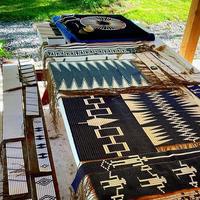
Keynote Lecture
Handling the Black Box: How will We Protect and Learn from Indigenous Traditional Knowledge in the Age of Machine Learning?
Prof Joy Porter (Professor of Indigenous & Environmental History & Leverhulme Major Research Fellow, University of Hull) will deliver the opening keynote of the 2023 AHRC International Conference on 18 September 2023. Her lecture will consider how the sovereignty of Indigenous intellectual knowledge can be assured in the age of AI, an urgent question requiring interdisciplinary and multi-sectoral application in new ways on a new scale.
Deadline for submissions
The deadline for paper abstracts and panel proposals is Friday 16 June 2023, midday (GMT). This deadline is only for students from Oxford, Cambridge and The Open University.
All submissions should be made via this form.
The theme of this year’s conference, Entanglements, has increasing purchase across a range of humanities disciplines. It reflects the increasing interdisciplinarity of the academic world, and encourages fresh and unusual opportunities for intellectual cross-pollination across a number of fields within the broad scope of the arts and humanities. To be entangled means many things: it is to be interwoven, interlinked, deeply involved with a number of elements (Merriam-Webster Dictionary). Entanglements can be positive, enlightening, productive, but also indicate complexity, which can be troubling or confusing. The concept of entanglement may also connote enmeshment, entrapment, ensnarement and co-dependency. Entanglements are all around us, a very central part of the human experience, and this conference will reflect upon the ubiquity of the linked and inter-related nature of the arts and humanities, and beyond. It is virtually impossible to separate disciplines in the study of our globalised and globalising world in today’s world. How can disciplines speak to, inform, and learn from one another to better understand the societies we inhabit? The conference will acknowledge the messiness and blurriness of binaries, boundaries and borders that defy simple categorisation, and ruminate upon how we might use this porousness to our advantage.
We will be joined by keynote speakers from a number of institutions, who will be announced in due course. Each day of our conference will include social events, coffee and lunch breaks, and conference dinners to allow attendees and panellists to network and explore Oxford.
We welcome proposals for 20-minute presentations, as well as proposals for themed panels. Presentations may address, but need not be limited to:
- Systems of Entanglement: Social, Political, & Economic Entanglements
- Entangling the Intangible: Belief, Dogma, & Religious Entanglements
- Creating and Representing Entanglement: Materiality, Art, Architecture, Visuality, Performance, Literature, Poetry, Music.
- Entanglement in Theory & Practice: Theories of Networks
- Disentanglements: Limitations of Networks (Cohesion, Scope, Reliability of Exchanges and Interactions)
- Tangled from a Distance: Spatial Entanglements
- Entangled Without Choice: Legacies of the Past, Post-Colonial Perspectives etc.
- Entangled Geographies: Migration, Diaspora, Community Across Land, Oceans, Borders, and Frontiers; Metropole-Periphery Flows and Intra-Colony Interactions in Empires
- Ecological Entanglements: Climate and Environment; People-Animal-Environment Interactions
- Entangled Histories: (Re)writing Historical Narratives; Previously Ignored Actors; Ideological and Political Power in the Creation of ‘History’
- Muddled Identities and Entanglements in the Self: Intersections of Race, Class, Gender and Sexuality
- Queerness in Question and Connection
Doctoral students at the OU, Oxford, and Cambridge are invited to submit proposals for 20-minute presentations, as well as proposals for themed panels. Presentations may address, but need not be limited to:
- Title
- Abstract (of no more than 200 words)
- Speaker biography (of no more than 150 words)
- Five key words relating to your proposed paper
How to submit
| Paper abstracts and panel session proposals | Please submit via this online form. |
| Attendees | TBC |
Outcomes
We will aim to inform applicants of the outcome of their submission by Wednesday 31st May 2023.
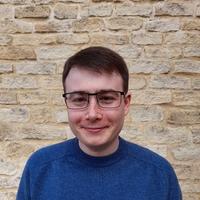
|
James CogbillI am a second-year DPhil student in History at Worcester College, Oxford. My research explores the mutually-inscribing interconnectivity of the premodern ruling family and ‘political culture’ – the framework of structures, practices and expectations within which political actors operated, and by which they were constrained – in the Late Byzantine period (c. 1261-1461). |

|
Fergus Selsdon GamesI’m a History PhD candidate at Sidney Sussex, Cambridge. My research aims to trace the American philosopher and social critic John Dewey’s (1859-1952) afterlives in thought and culture. I am particularly interested in how postwar intellectuals engaged with Dewey both across and between social, disciplinary and ideological boundaries. My wider work extends across the fields of C20th American intellectual history, cultural history and political thought. |
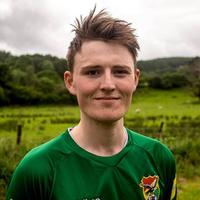
|
William HuddlestonI am a PhD student in Spanish and Portuguese at Corpus Christi College, Cambridge. My project examines Uruguayan football in the 1920s and 30s, using the Celeste's victories in a triptych of key international tournaments to explore questions of national identity, populism and modernity in Latin America, as well as processes of cultural globalisation and mass mediatisation in the early 20th century. |
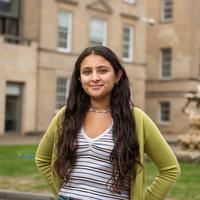
|
Arisa LoombaI am a DPhil student in Global & Imperial History at St Cross College, Oxford. My interdisciplinary project, partnered with the National Trust, focuses on the global connections of Rudyard Kipling’s (1866-1936) collection of books, art, furniture and decor held at his East Sussex estate, ‘Bateman’s’, my primary archival site. Key questions interrogate material culture and empire; race and indigeneity; migration, mobility and transnational lives in the British Empire; environmental and animal histories. |
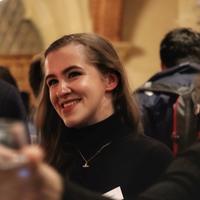
|
Isabel ParkinsonI am a DPhil student at St Hugh's College, Oxford. My research focuses on English translations of German-language women-authored novels from the 1930s to the present. I am specifically analysing consciousness narratives — that is, prose which uses innovative techniques to verbalise women's interiority — in order to examine how (and how successfully) these have been rendered into English. |
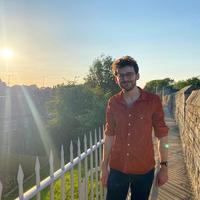
|
Julian WoodI am a PhD student at Gonville & Caius College, Cambridge. My work explores dispute and exchange between Christian communities in early medieval Byzantium and Palestine (c. 690-900), and also between those communities and their Muslim neighbours. I am particularly interested in the act of image-veneration for each broad group, and how the colour in sacred depictions might have served them differently as a means of divine contact. |
Our international partners for the 2023 conference include:
- a.r.t.e.s. Graduate School of Cologne University
- Australian National University
- Massachusetts Institute of Technology
- Stockholm University
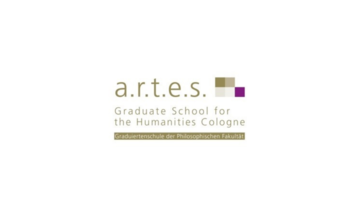
|

|
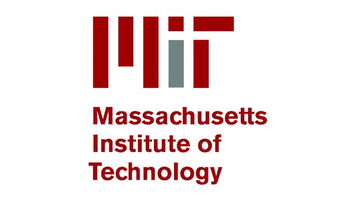
|
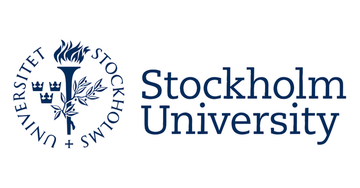
|
The first five Cambridge AHRC International Conferences were organised and supported by the Cambridge AHRC DTP. Conference themes included: Trust and Truth (2019), Space and Surface (2018), Tradition and Transformation (2017), Time and Temporality (2016). You can find out more about these past conferences here: https://cambridgeahrcdtpconferences.co.uk/.
The subsequent two conferences, Across Distance (2021) and Hybridity (2022), were organised by a committee of students from the OU, Oxford, and Cambridge, with support from the Open-Oxford-Cambridge AHRC DTP.
Contacts
If you have any questions, please write to the committee at entanglements2023@gmail.com.


